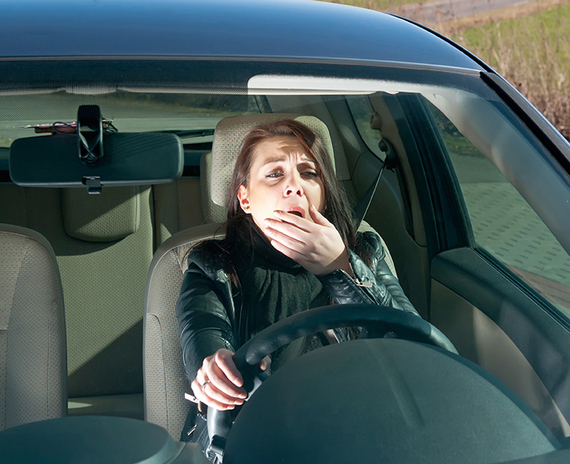We are overtired, as a nation. Our culture has made a good night of sleep a novelty rather than a necessity, and the consequence can be deadly. Of all the things Americans value, we are ignoring a priceless commodity - sleep.
Well-known industry leaders have been drawing a lot of attention to the issue, and for good reason. An adult needs an average of 7-9 hours of sleep per night, but according to the National Health Interview Survey, nearly 30% of adults reported averaging less than 6 hours daily.* You wouldn't drive to work on an empty tank of gas or leave home without your phone charged. Yet, we expect to perform at our peak even when we don't fill up our own gas tank with the energy obtained from a good night's rest.
According to the National Sleep Foundation, humans, like all animals, need sleep, along with food, water and oxygen, to survive. For humans, sleep is a vital indicator of overall health and well-being. And although we spend up to one-third of our lives asleep, we receive very little education or training in healthy sleep habits. If you don't get a good night of sleep, you are not alone. Researchers at the Institute of Medicine estimate that more than 70 million, or nearly 1 out of every 5, Americans suffer from a sleep disorder.
Feeling tired in and of itself is unpleasant and can have negative impacts on our health. But when you combine fatigue with certain activities, you may be losing more than just sleep.
The National Highway Traffic Safety Administration (NHTSA) estimates more than 5,000 people died in drowsy-driving related crashes in 2014. Just a few seconds of nodding off behind the wheel can have devastating consequences. A drowsy driver can be a deadly driver.
Fatigue is estimated to cost American employers $136 billion per year in health-related lost productivity, according to environmental health and safety publication, ehstoday.com. Most incidents occur when people are more sleep-deprived, between midnight and 6 a.m., and between 1-3 p.m., according to Alberta Human Resources and Employment reports. Research has shown that someone who has been awake for 17 hours has the equivalent of a blood alcohol level of 0.05. Someone who has been awake for 21 hours is equivalent to a blood alcohol level of 0.08. Combine these circumstances with daily hazards and the consequences can be dire.
How to Get More Sleep
We may be tired as a nation, but culture change starts with the individual. Here are some ways you can jumpstart your routine to get more sleep and be safer:
- Create a bedtime routine and stick to it This helps to regulate your body's clock and could help you fall asleep and stay asleep for the night.
While alcohol, a depressant, makes you drowsy and can help you fall asleep faster, it disrupts the period of restorative sleep that occurs in the second half of the night.
Sleep is more than just a luxury, it is a necessity. Getting more sleep will help you feel better, live healthier and be safer.
*Source: CDC
